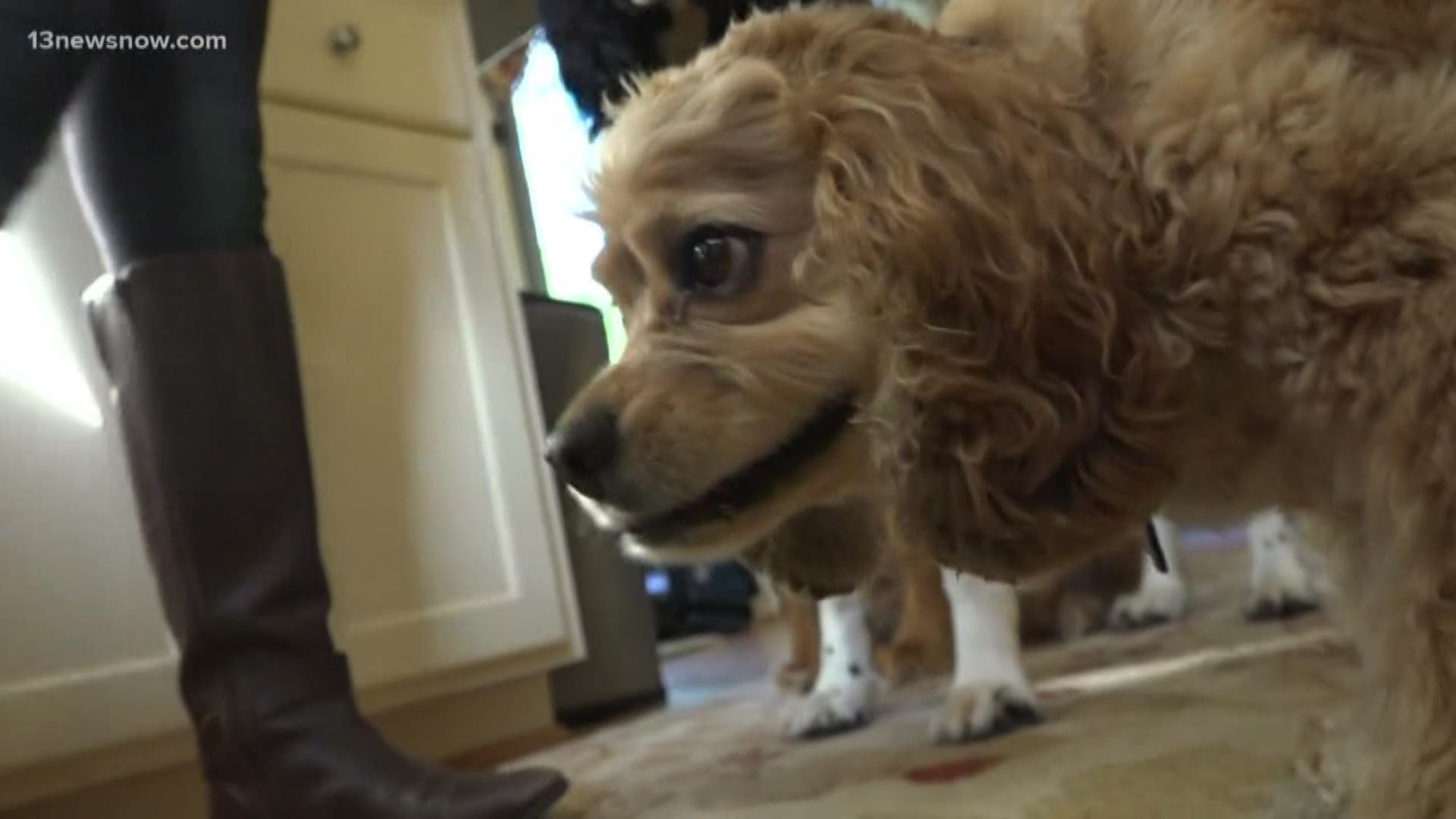CHESAPEAKE, Va. — Most people probably think of bloat as not being able to fit into that favorite pair of pants after a big dinner.
But for dogs, Dr. Denette Cooke says it's much different.
"That involves the stomach swelling and filling with gas, then flipping and twisting. Causing great distress to the dog."
So what causes it?
"That's kind of debated, because you can find bloat when you wouldn't expect it," said Dr. Cooke. "They think there is a genetic predisposition. High carbohydrate, dry dog foods can also cause it because they tend to produce gas in the stomach and being very active around mealtime."
There are steps we can take to prevent your pup from getting this condition. For one: get rid of the elevated feeder bowls! You should also prepare smaller meals and make sure there is no intense activity 30 minutes to an hour before and after they eat.
Using an interactive feeder will also help slow them down.
For some dogs, it's not so simple. Many already have a predisposition.
"Dogs that are prone to bloat are dogs with deep chests ... like a boxer, Dobermann, your labs, golden retrievers. Any big dog can be prone to it because their chests are so deep and their abdomens are more narrow," said Dr. Cooke.
So what should you be on the lookout for?
According to Dr. Cooke, "The signs that you may see may certainly be excessive panting, they can't get comfortable, drooling, vomiting, wretching. They may try to get water to feel better and bring that up... pacing, wide-eyed. They're very distressed; you'll know."
If you notice this, time is critical. Get them to an emergency vet because surgery may be the only solution.

